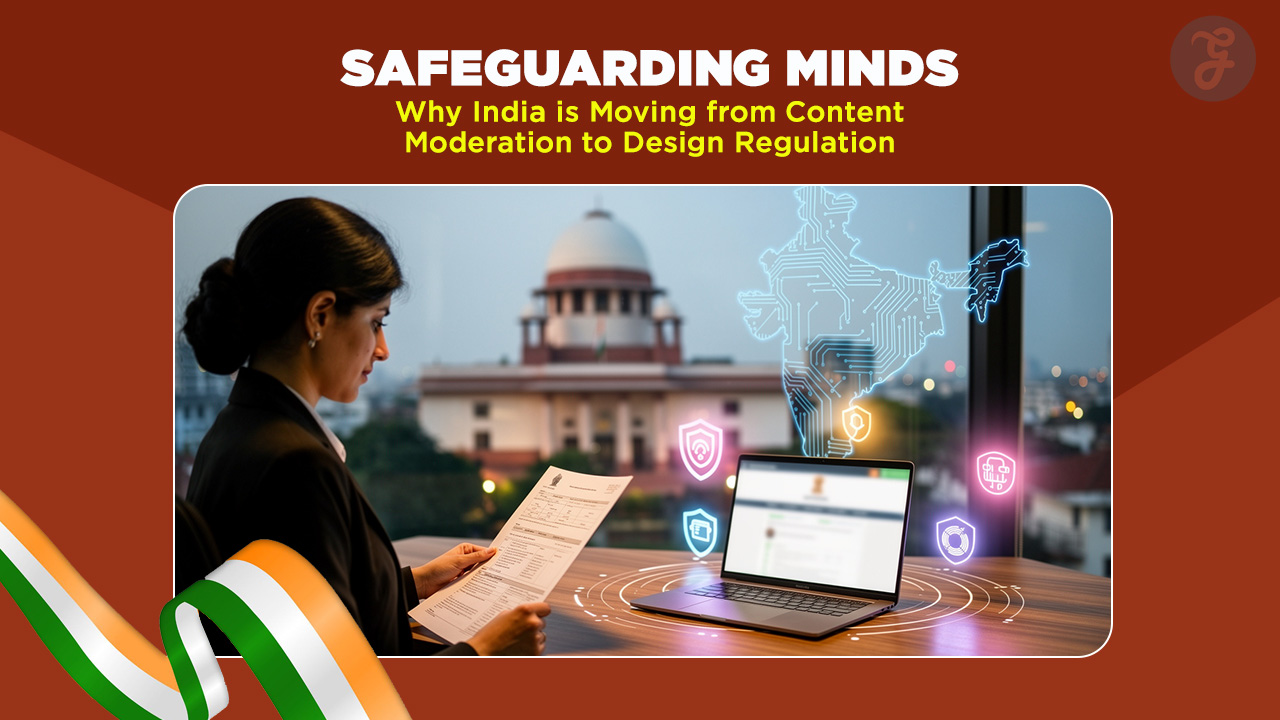Relationships can be tricky. Even the happiest couples face challenges from time to time. You might wonder if your problems are daily or a sign of deeper issues.
Learning about common relationship problems can help you spot issues early and find solutions.
This article will examine 20 frequent relationship struggles and offer tips to overcome them. Whether dealing with communication breakdowns, trust issues, or fading passion, you’ll find advice to strengthen your bond and build a healthier partnership.
1. Lack of Communication
Communication is the foundation of a healthy relationship. When it breaks down, problems can quickly pile up. Many couples struggle to talk openly about their feelings and needs.
Poor communication takes many forms. Avoid tough topics or walk away during arguments. You may assume you know what your partner is thinking without asking. These habits can lead to misunderstandings and hurt feelings.
Good communication involves active listening. This means paying attention to what your partner says. It also means expressing yourself clearly and honestly.
Try setting aside time each day to talk without distractions. Share your thoughts and feelings openly. Ask questions to understand your partner’s perspective better.
Be patient and kind in your conversations. Avoid criticizing or getting defensive. Instead, focus on finding solutions together. Remember, you’re on the same team.
If you’re having trouble improving communication, don’t be afraid to seek help. A couples therapist can teach you valuable skills to connect better. You can overcome communication barriers and strengthen your relationship with effort and practice.
2. Trust Issues
Trust issues can create big problems in relationships. You might find it hard to believe your partner or open up to them. This can lead to arguments and distance between you.
Where do trust issues come from? Past hurts or betrayals often play a role. If someone broke your trust, you might expect it to happen again.
Trust issues can show up in different ways. You might feel jealous a lot or check your partner’s phone. You could avoid getting close to people or push them away when things get serious.
These behaviors can hurt your relationship. Your partner might feel you don’t trust them, even if they haven’t done anything wrong.
To work on trust issues, be honest with yourself and your partner. Talk about your fears and where they come from. Try to give your partner a chance to prove they’re trustworthy.
It’s also essential to work on trusting yourself. Build your self-esteem and learn to rely on your judgment. This can help you feel more secure in relationships.
3. Jealousy
Jealousy can wreak havoc on relationships. It often stems from insecurity and fear of losing your partner.
If you feel jealous, take a step back and breathe deeply. Try to identify the root cause of your feelings. Are you worried about your partner cheating? Do you feel inadequate?
Talk to your partner openly about your jealousy. Express your concerns calmly without making accusations. Ask for reassurance if you need it.
Work on building your self-confidence. Focus on your positive qualities and accomplishments. Set personal goals and celebrate when you achieve them.
Trust is crucial for overcoming jealousy. If your partner hasn’t given you reasons to distrust them, provide them with the benefit of the doubt. Avoid snooping or constant questioning.
Spend quality time together to strengthen your bond. Plan fun dates and create new shared experiences. This can help reduce insecurity and jealousy.
If jealousy persists, consider talking to a therapist. They can help you develop coping strategies and address underlying issues.
Remember, a healthy relationship is built on trust and open communication. You can overcome jealousy and build a stronger connection with effort and understanding.
4. Infidelity
Infidelity can shatter trust and cause deep pain in relationships. It’s more common than you might think, affecting up to 50% of couples.
Cheating comes in many forms. It can be physical, emotional, or even financial. Some people have one-night stands, while others engage in long-term affairs.
If you suspect your partner is cheating, look for signs. These may include secretive behavior, sudden changes in appearance, or unexplained expenses. But don’t jump to conclusions without proof.
For those who have been cheated on, coping can be challenging. You might feel angry, sad, or betrayed. It’s normal to question your self-worth and the entire relationship.
If you’re the one who cheated, avoid making excuses. Take responsibility for your actions. Be honest and patient with your partner as they process their emotions.
Can a relationship survive infidelity? Yes, but it takes work. Both partners must be committed to rebuilding trust. This often requires open communication and sometimes professional help.
Remember, healing takes time. There’s no quick fix for infidelity. However, with effort and understanding, some couples emerge more assertive on the other side.
5. Financial Problems
Money troubles can strain even the most vital relationships. You and your partner may have different spending habits or views on saving. This can lead to arguments and stress.
One way to tackle this is to talk openly about money. Set up regular “money dates” to discuss your finances together. Be honest about your income, debts, and financial goals.
Creating a shared budget can help. Track your spending and decide together how to allocate your money. This can prevent surprises and ensure you’re both on the same page.
Consider combining your finances if you haven’t already. Joint accounts can foster a sense of teamwork in managing money. But make sure you both agree on how to use shared funds.
If debt is an issue, make a plan to pay it off together. You should cut back on spending or find ways to boost your income. Supporting each other through this process can strengthen your bond.
Don’t be afraid to seek help if needed. A financial advisor can offer unbiased advice and help you create a solid plan for your future. Remember, you’re a team facing this challenge together.
6. Different Life Goals
Having different life goals can put a strain on a relationship. You and your partner may want different things for the future. This can cause tension and conflict.
Common examples include disagreements about having kids, career paths, or where to live. One of you might want to settle down, while the other dreams of traveling the world.
It’s important to talk openly about your goals and dreams. Share what matters most to you. Listen to your partner’s hopes, too. Try to find ways to support each other’s aspirations.
Look for compromise where possible. You can find a middle ground that works for both of you. For example, consider a suburban area if one wants to live in the city and the other in the countryside.
Couples can work toward separate goals while still maintaining their relationship. At other times, significant differences may be hard to reconcile. Be honest with yourself about what you need to be happy.
Remember that goals can change over time. Check-in regularly about your plans and priorities. Stay flexible and be willing to adjust as you both grow and evolve.
7. Intimacy Issues
Intimacy issues can put a strain on your relationship. These problems may appear as fear of getting close or trouble showing affection. You might feel uncomfortable with physical touch or find it hard to open up emotionally.
Past experiences often play a role in intimacy problems. Bad relationships or childhood trauma can make it scary to be vulnerable with someone new. Sometimes, poor communication between partners leads to distance.
Fixing intimacy issues takes time and effort from both people. Try talking openly about your feelings and fears with your partner. Start small by holding hands or hugging more if physical touch is hard.
Set aside regular time to connect without distractions. This could be a weekly date night or daily check-ins. Focus on building trust slowly through honest talks and shared activities.
If you’re struggling, couples counseling can help. A therapist can teach you ways to feel safer being close. They can also help you work through past hurts that might be getting in the way.
Remember, many couples face intimacy problems at some point. You can grow closer and build a stronger bond with patience and work.
8. Boredom
Boredom can creep into even the happiest relationships. It’s normal to feel stuck in a rut sometimes. The good news is there are ways to shake things up and bring back the excitement.
Try new activities together. Pick a hobby you both enjoy or explore a new part of town. This can create fresh experiences and memories to share.
Plan regular date nights. Make time for just the two of you, away from daily routines. It doesn’t have to be fancy – a picnic in the park or a movie night at home can work wonders.
Surprise each other. Small, unexpected gestures can reignite the spark. Leave a sweet note, cook their favorite meal, or plan a spontaneous outing.
Spend time apart occasionally. Having separate interests and friendships can make your time together more special. It gives you new things to talk about and share.
Change up your routine. Even minor tweaks like trying a new restaurant or taking a different route on your daily walk can break the monotony.
Talk about your feelings. If you’re feeling bored, tell your partner. Work together to find solutions and keep your relationship fresh and exciting.
9. Family Interference
Family interference can put a strain on your relationship. It happens when relatives get too involved in your personal life. This can lead to stress and arguments between you and your partner.
In-laws are often the main culprits. They may offer unwanted advice or criticize your decisions. Sometimes, they drop by unannounced or call too usually. This can make you feel like you have no privacy.
To deal with family interference, set clear boundaries. Talk to your partner and agree on limits for family involvement. Then, communicate these boundaries to your relatives in a kind but firm way.
Make decisions as a couple. Don’t let family members sway you on essential matters. Stand united when facing pressure from relatives.
If the problem persists, limit contact with interfering family members. Spend less time with them or take breaks from communication when needed.
Remember, your relationship comes first. While family is important, your partner should be your priority. Work together to protect your relationship from outside influences.
10. Addictions
Addictions can put a significant strain on relationships. When one partner struggles with substance abuse or other addictive behaviors, it affects both people deeply.
Trust often breaks down as the addicted person lies or hides their behavior. The non-addicted partner may feel hurt, angry, and unable to rely on their loved one.
Money problems are common, too. Addictions can drain savings and lead to debt. This creates stress and conflict over finances.
The addicted person’s health and well-being usually suffer. This worries their partner and can change the dynamic between them. The non-addicted partner may take on a caretaker role.
Communication typically breaks down. The addicted person may be distant or irritable. Their partner may nag or criticize them out of frustration.
Getting help is crucial for both people. The addicted person needs treatment to overcome their addiction. Their partner can benefit from support groups or therapy, too.
Rebuilding trust takes time and effort from both sides. Open, honest talks are key. Setting clear boundaries helps create safety and stability again.
With commitment and professional help, many couples overcome addiction together. The process isn’t easy but can lead to a stronger relationship.
11. Different Cultural Backgrounds
When you and your partner come from different cultures, it can enrich your relationship. But it can also bring challenges. You might have different views on family, money, or personal space.
Communication styles can vary across cultures. You may find your partner is more direct or indirect than you’re used to. This can lead to misunderstandings if you’re not aware of these differences.
Food and celebrations are often tied to culture. You should find ways to blend your traditions or create new ones. This can be fun, but it may also require compromise.
Religious beliefs can be a source of conflict in cross-cultural relationships. You’ll need to discuss how to handle different practices and values. Respecting each other’s beliefs is critical.
Family expectations can be tricky to navigate. Your families might have different ideas about your relationship. It’s important to set boundaries and communicate openly with both sides.
Learning about each other’s cultures can strengthen your bond. Try to approach differences with curiosity and openness. Ask questions and be willing to learn new things.
Remember, every relationship is unique. What works for one couple might not work for another. Be patient and keep talking as you find your way to blend your cultural backgrounds.
12. Conflict Resolution
Conflicts happen in every relationship. It’s normal to disagree sometimes. The key is how you handle these disagreements.
Good communication is crucial. When you’re upset, take a deep breath before speaking. Try to stay calm and express your feelings without attacking your partner.
Listen carefully to your partner’s perspective. Don’t interrupt or get defensive. Try to understand their point of view, even if you disagree.
Focus on the issue at hand. Avoid bringing up past arguments or unrelated problems. Stick to solving the current conflict.
Look for compromise. Be willing to meet in the middle. Think about solutions that work for both of you, not just one person.
Take breaks if things get heated. It’s okay to pause the discussion and return when you’re both calmer. This can help prevent saying hurtful things in the heat of the moment.
Remember, you’re on the same team. You aim to solve the problem together, not win the argument. With practice, you can learn to resolve conflicts healthily, strengthening your relationship.
13. Overcommitment
Overcommitment is a common issue in relationships. It happens when you take on too many responsibilities or obligations. This can leave you feeling stressed and overwhelmed.
You might find yourself saying “yes” to everything your partner asks. Or you may handle all household tasks alone. This can lead to burnout and resentment.
Signs of overcommitment include feeling constantly tired and rushed. You may struggle to meet deadlines or keep promises. Your time and self-care often suffer.
To address this problem, start by setting clear boundaries. Learn to say “no” to non-essential requests. Prioritize your tasks and focus on what’s truly important.
Talk to your partner about sharing responsibilities—delegate tasks when possible. Make time for relaxation and activities you enjoy.
Remember, it’s okay to ask for help. Open communication with your partner is critical. Discuss your feelings and work together to find a balance.
By managing your commitments, you can reduce stress and improve your relationship. You’ll have more energy and time for each other.
14. Stress Management
Stress can put a significant strain on relationships. It’s normal to feel stressed sometimes, but too much stress can cause problems between you and your partner.
When stressed, you might get irritable or withdraw from your partner. This can lead to fights or feelings of distance in your relationship.
To manage stress together, try talking openly about what’s bothering you. Listen to each other without judgment and offer support.
Make time for relaxation as a couple. Try deep breathing exercises, walk together, or sleep quietly.
Exercise is great for beating stress. Why not work out together or take up a fun, active hobby you both enjoy?
Set boundaries around work and other commitments. Make sure you have quality time just for your relationship.
If stress is overwhelming, don’t be afraid to seek help. A couples therapist can teach you stress management skills to use together.
With some effort, you can learn to handle stress in healthy ways. This will make your relationship more robust and more resilient.
15. Power Struggles
Power struggles can hurt your relationship. They happen when you and your partner fight for control. This can make you both feel frustrated and angry.
You might see power struggles in how you make decisions. One of you may try to dominate choices about money, kids, or where to live. This leaves the other person feeling left out.
Power struggles can also show up in daily life. You might argue over chores or who chooses what to watch on TV. These small battles can add up and cause significant problems.
To fix power struggles, talk openly with your partner. Share your feelings and listen to theirs. Try to understand why each of you wants control.
Work on making decisions together. Find ways to compromise that make you both happy. Remember, you’re a team, not rivals.
If you can’t solve power struggles on your own, think about couples therapy. A professional can help you learn better ways to communicate and share power.
16. Lack of Appreciation
Feeling unappreciated can hurt your relationship. When you don’t feel valued, you might lose motivation to put effort into your partnership.
Small gestures of gratitude can make a big difference. Saying “thank you” for everyday tasks shows you notice your partner’s contributions.
Try to catch your partner doing something good. Compliment them on their skills or efforts. This creates a positive cycle where both of you feel more appreciated.
Set aside time to express what you love about each other. Share specific examples of things your partner does that make you happy.
Remember to show appreciation through actions, too. Help with chores or surprise your partner with a thoughtful gift.
If you feel unappreciated, talk to your partner calmly. They might not realize how their behavior affects you. Work together to find ways to show more gratitude in your relationship.
17. Unresolved Past Issues
Unresolved past issues can haunt your relationship. Old wounds from previous relationships or childhood experiences may surface unexpectedly. These can cause trust problems and emotional baggage.
You might find yourself reacting strongly to certain situations without understanding why. Your partner may also struggle with their past traumas. This can lead to misunderstandings and conflicts.
It’s important to recognize when past issues are affecting your current relationship. Pay attention to patterns in your reactions and behaviors. Are you projecting old fears onto your partner?
Talking openly about your past can help. Share your experiences and listen to your partner’s story. This builds understanding and empathy between you.
Seeking professional help can be beneficial. A therapist can guide you through processing unresolved issues. They can provide tools to cope with past traumas and improve your current relationship.
Remember, healing takes time. Be patient with yourself and your partner as you work through these challenges. With effort and support, you can overcome the impact of past issues on your relationship.
18. Sensitivity to Criticism
Being sensitive to criticism can strain your relationship. When your partner gives feedback, you might feel hurt or defensive. This can lead to arguments and distance between you.
Try to see criticism as a chance to grow. Remember, your partner likely wants to help, not hurt you. Take a deep breath before responding. This gives you time to process your emotions.
Ask your partner to use “I” statements when giving feedback. For example, “I feel ignored when you’re on your phone” instead of “You’re always ignoring me.” This approach feels less accusatory.
Set up criticism-free times with your partner. Agree on periods where you won’t give each other negative feedback. This can create a more positive atmosphere.
Practice gratitude to balance out criticism. Make an effort to notice and appreciate the good things your partner does. Share these positive observations regularly.
If criticism still feels overwhelming, consider talking to a therapist. They can help you develop a thicker skin and improve your communication skills as a couple.
19. Different Parenting Styles
Parenting styles can cause tension in your relationship. You and your partner may have different ideas about raising kids. This can lead to arguments and stress.
Common parenting styles include authoritative, authoritarian, permissive, and uninvolved. You might use firm rules while your partner is more relaxed. Or you could be nurturing while they focus on discipline.
These differences can affect your marriage. You may feel unsupported or that your values are ignored. This can create distance between you and your partner.
To handle this issue, talk openly about your parenting beliefs. Share why specific approaches matter to you. Listen to your partner’s views without judgment.
Try to find a middle ground. Be willing to compromise on some aspects of parenting. Agree to try each other’s methods at times.
Remember that different strategies may work for other kids. Be flexible and adjust your approach as needed.
Put your relationship first. Work together as a team to raise your children. Support each other in front of the kids, even if you disagree.
Seek help if you can’t resolve conflicts. A family therapist can guide you toward more effective co-parenting.
20. Health Issues
Health problems can put a lot of stress on relationships. When you or your partner gets sick, it changes things. You might have to take on new roles or responsibilities.
Chronic illnesses are especially tough. They can affect your energy, mood, and ability to do things together. Money worries from medical bills can also cause tension.
Mental health issues like depression or anxiety can make connecting difficult. The partner who isn’t sick may feel frustrated or helpless. They might not know how to help.
Communication is critical when dealing with health problems. Talk openly about how you’re feeling. Ask for help when you need it. Be patient with each other as you adjust.
Try to find ways to stay close despite health challenges. Even small gestures of affection and support can mean a lot. Remember, you’re a team facing this together.
Don’t be afraid to seek outside help. Doctors, therapists, and support groups can offer valuable advice and resources. Taking care of your relationship is just as important as your health.
Summary
In any relationship, facing challenges is a natural part of the journey. Whether it’s dealing with communication breakdowns, trust issues, or health problems, these struggles can test the strength of your partnership.
However, the key to overcoming these obstacles lies in understanding, communication, and commitment. By identifying common relationship problems and actively working on solutions, couples can grow stronger together.
Remember, no relationship is perfect, but with effort, patience, and a willingness to address issues head-on, you can build a healthier, more resilient partnership.
Whether seeking professional help, finding compromises, or simply being there for each other, the solutions are within reach. The journey may not always be easy, but it’s worth it for a fulfilling and lasting relationship.








































